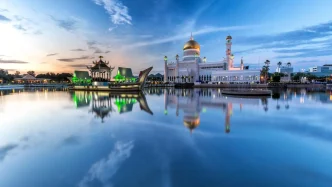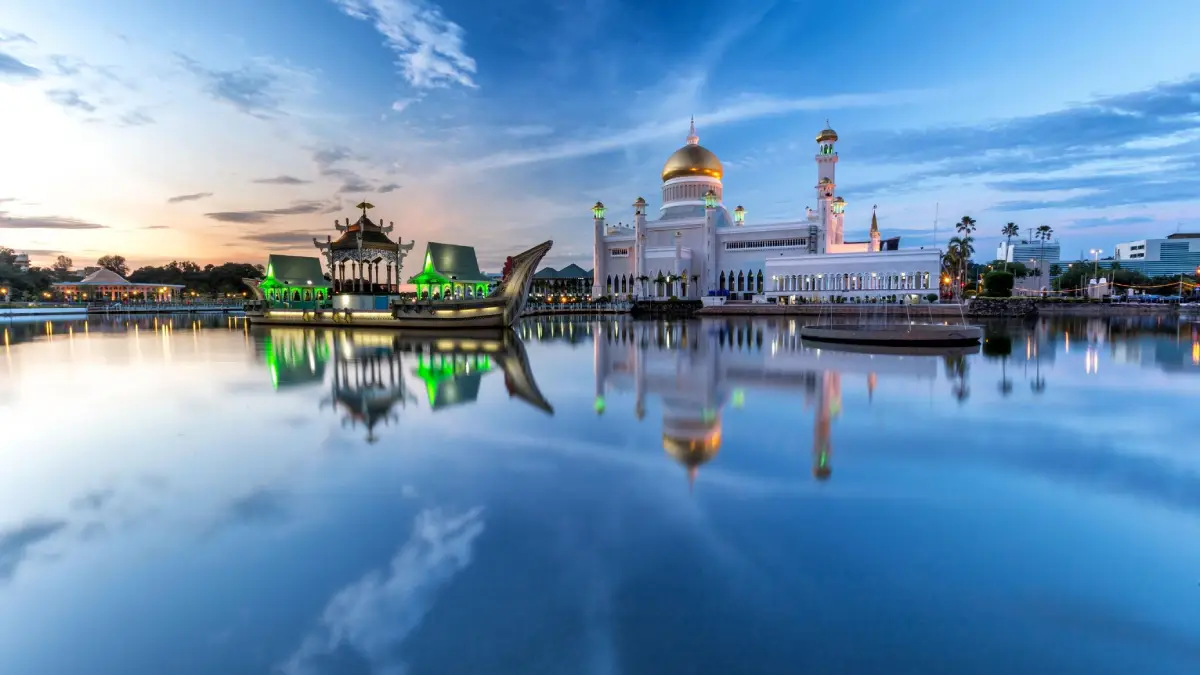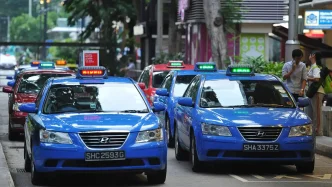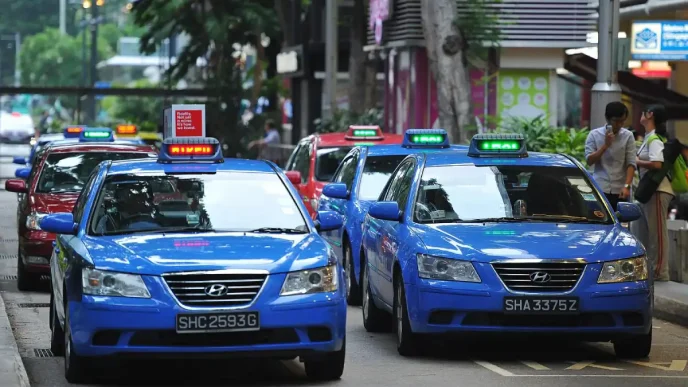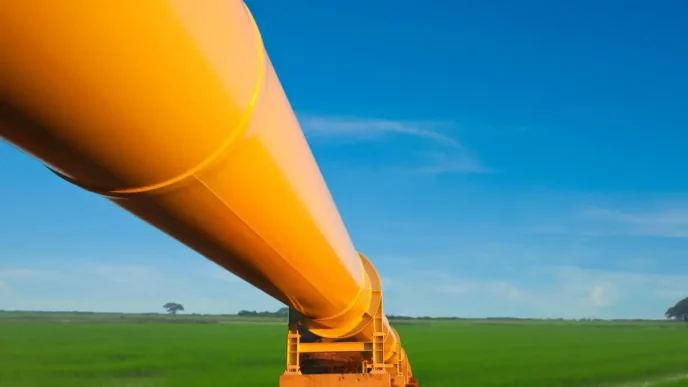Brunei Darussalam’s economy is on a robust recovery trajectory, bolstered by moderate inflation, macroeconomic stability, and substantial fiscal and external reserves, according to a recent report by the ASEAN+3 Macroeconomic Research Office (AMRO). Released on Thursday, the 2025 Annual Consultation Report highlights the Sultanate’s resilience in the face of global economic pressures, while pointing to persistent structural challenges that could temper long-term growth.
A Broad-Based Economic Rebound
The AMRO report, compiled following a consultation visit to Brunei in April 2025 and incorporating data up to May 30, paints a picture of broad-based economic growth. The oil and gas sector, a cornerstone of Brunei’s economy, has seen a significant rebound in both upstream and downstream activities. This resurgence has been complemented by strong performances in the non-oil and gas sectors, particularly in trade, air transport, communications, agri-food, and tourism. Together, these sectors have underpinned the nation’s economic recovery, positioning Brunei as a stable player in a volatile global landscape.
Looking ahead, AMRO projects that Brunei’s economic growth will moderate to a sustainable pace of 2.0 percent over 2025–26. This slowdown reflects a normalization after the rapid post-pandemic recovery, as well as external pressures such as fluctuating global energy prices and the ongoing shift toward decarbonization. Despite this moderation, the outlook remains positive, with the Sultanate’s economic buffers providing a cushion against potential shocks.
Inflation Under Control, External Position Strong
One of the standout features of Brunei’s recovery is its subdued inflation rate. Headline inflation has been on a downward trend since 2023, turning negative last year due to falling prices in transport, communication, clothing, and footwear. AMRO forecasts that inflation will remain low, averaging below 1 percent in 2025–26, driven by continued declines in food and energy costs. This low inflationary environment offers stability for consumers and businesses alike, allowing for more predictable economic planning.
Brunei’s external position also remains a source of strength. The country maintains a sizable current account surplus, supported by its energy exports, alongside ample foreign reserves. However, AMRO notes that the surplus is expected to narrow to 11.5 percent of GDP in 2025, down from 14.6 percent in 2024. This reduction is attributed to softer global energy prices and an uptick in demand for imported services, particularly in transport and travel. While this narrowing signals some vulnerability to external market dynamics, Brunei’s reserves provide a significant buffer to manage such transitions.
Fiscal Challenges and the Path to Sustainability
On the fiscal front, Brunei faces more immediate challenges. The fiscal deficit widened to 13.0 percent of GDP in the fiscal year 2024 and is projected to increase further to 13.9 percent in FY2025. This deterioration is largely due to weaker global energy prices, which have reduced government revenues from oil and gas exports. To cover these shortfalls, the government has drawn down on its reserves, a strategy that AMRO cautions should be used judiciously.
The report emphasizes the need for strategic use of fiscal buffers to address temporary shocks rather than funding structural imbalances. AMRO welcomes Brunei’s Fiscal Consolidation Programme, which aims to reduce dependency on volatile energy revenues and improve fiscal discipline. It also urges the government to strengthen rules-based fiscal frameworks to enhance credibility, transparency, and long-term sustainability. Such measures could help Brunei navigate future economic uncertainties while preserving its financial stability.
Monetary Stability and Financial Safeguards
Monetary stability remains a cornerstone of Brunei’s economic framework, underpinned by the Currency Board Arrangement and the Currency Interchangeability Agreement with Singapore. These mechanisms ensure that the Brunei dollar remains pegged to the Singapore dollar, providing predictability for investors and businesses. The AMRO report supports the efforts of the Brunei Darussalam Central Bank (BDCB) to align policy rates with Singapore and to enhance monetary transmission through improved liquidity management tools.
At the same time, AMRO highlights the importance of safeguarding financial stability amid potential cross-border risks. The report encourages Brunei’s authorities to strengthen due diligence on offshore lending by domestic banks, which could expose the financial system to external vulnerabilities. Proactive measures in this area could prevent spillover effects from global financial turbulence, ensuring that Brunei’s banking sector remains a pillar of economic stability.
Long-Term Priorities: Diversification and Regional Integration
Looking beyond the immediate recovery, AMRO underscores the urgency of structural reforms to secure Brunei’s economic future. The Sultanate’s heavy reliance on oil and gas revenues leaves it exposed to volatility in energy markets and the global push toward decarbonization. Diversifying the economy, particularly by expanding the non-oil and gas sector, is identified as a critical priority. This includes attracting more foreign direct investment (FDI) and deepening economic linkages through regional and bilateral trade agreements.
Policy recommendations from AMRO focus on several key areas. Enhancing labor market flexibility could help Brunei adapt to changing economic demands, while supporting micro, small, and medium enterprises (MSMEs) in digital transformation could drive innovation and competitiveness. Additionally, advancing green innovation is seen as essential to aligning Brunei’s economy with global sustainability goals, potentially opening new avenues for growth in renewable energy and eco-friendly industries.
Navigating Global Headwinds
Brunei’s economic recovery occurs against a backdrop of significant global challenges. Volatility in energy markets continues to pose risks to the Sultanate’s revenue streams, while shifting trade dynamics—driven by geopolitical tensions and supply chain disruptions—could impact export markets. The accelerating global shift toward decarbonization presents both a challenge and an opportunity. While it pressures Brunei to reduce its reliance on fossil fuels, it also offers a chance to position itself as a leader in sustainable development within the ASEAN region.
The AMRO report acknowledges Brunei’s resilience in the face of these headwinds. The Sultanate’s solid fiscal and external buffers provide a safety net, allowing it to weather short-term disruptions. However, the long-term success of its recovery will depend on the government’s ability to implement structural reforms and diversify its economic base. Without these changes, Brunei risks being caught in a cycle of dependency on energy revenues, which could undermine its stability in an increasingly unpredictable global economy.
A Forward-Looking Perspective
As Brunei continues on its path of economic recovery, the insights from the AMRO report serve as both a validation of its current strategies and a call to action for deeper reforms. The Sultanate’s ability to balance fiscal discipline with strategic investments in diversification will be crucial in shaping its future. With global economic conditions remaining uncertain, the question looms: can Brunei transform its recovery into a sustainable model of growth that withstands the pressures of a changing world?
